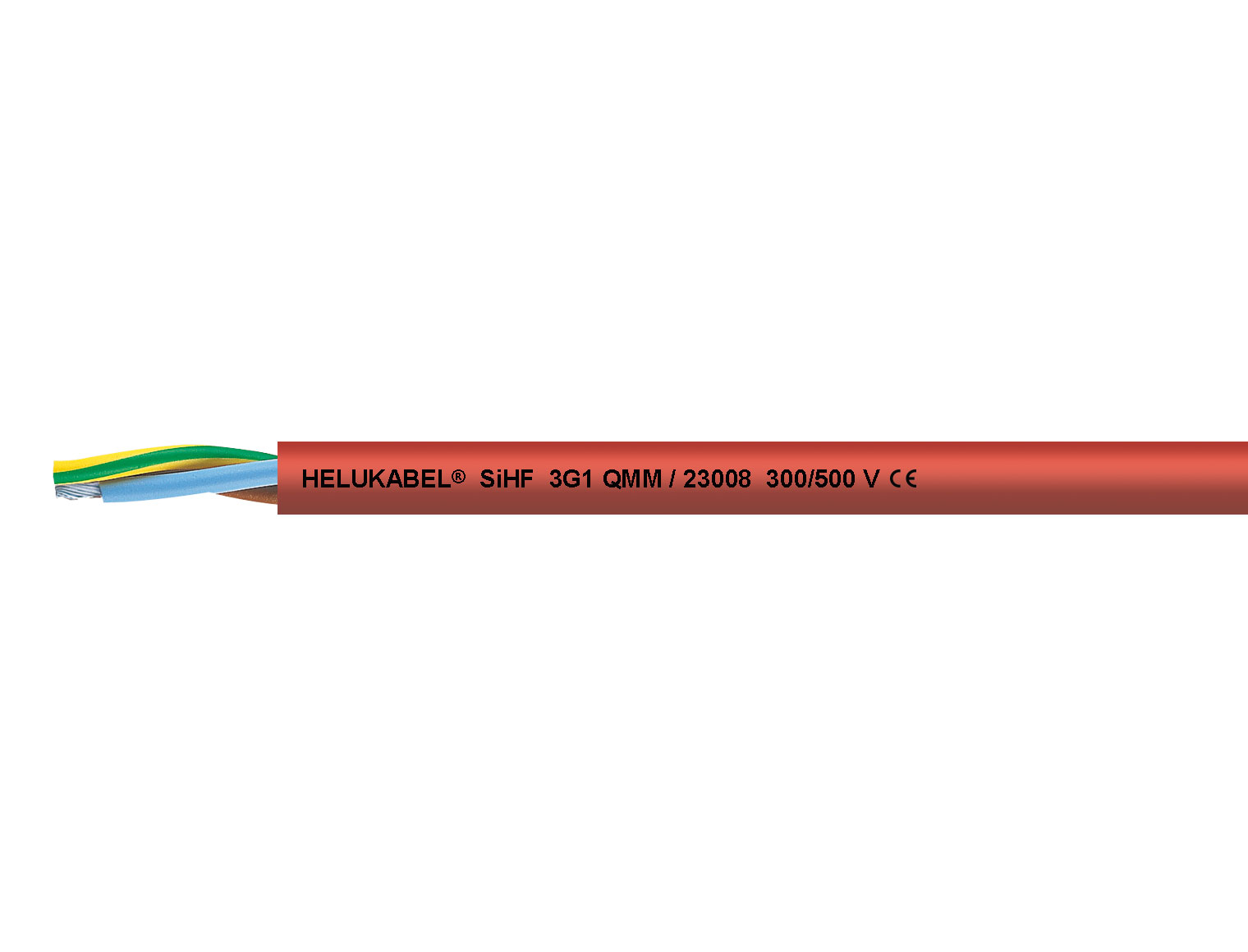

SiHF redbrown 7 G 4 mm²
Part no. 23039
- Silicone cable
- increased temperature resistance
- tinned wire
Base price. Surcharges are added for metal, price increases, packaging, shipping and to reach minimum order values according to the General Terms & Conditions. For details, see shopping cart.
Item Details SiHF redbrown 7 G 4 mm²
- Part no.
- 23039
- Item description
- SiHF redbrown 7 G 4 mm²
- AWG (approx.)
- 12
- Outer Ø mm (approx.)
- 15.6
- Cu factor per km
- 269.0
- Weight kg/km (approx.)
- 479.0
- Copper base in EUR / 100 kg
- 150
- Metres per Packaging Unit
- 500, 1000
- Cut-to-length service available
- yes
- EAN / GTIN
- 4060892161148
- Customs tariff number
- 85444995
Technical Data SiHF redbrown 7 G 4 mm²
| Silicone control and connection cable in alignment with DIN VDE 0250-1, DIN VDE 0285-525-2-83 / DIN EN 50525-2-83 | |
| Temperature range | flexible -25°C to +180°C fixed -60°C to +180°C |
| Permissible operating temperature of the conductor | +180°C |
| Nominal voltage | AC U0/U 300/500 V |
| Test voltage core/core | 2000 V |
| Breakdown voltage | 4000 V |
| Minimum bending radius | flexible 7.5x Outer-Ø fixed 4x Outer-Ø |
Details SiHF redbrown 7 G 4 mm²
Cable Structure
-
- Copper wire tinned, finely stranded acc. to DIN VDE 0295 Class 5 / IEC 60228 Class 5
-
- Core insulation: silicone
-
- Core identification acc. to DIN VDE 0293-308,
- 2 - 5 core(s): colour coded
- 6 - 25 core(s): black cores with consecutive labeling in white digits
-
- Protective conductor: starting with 3 cores,
- G = with protective conductor GN-YE, in the outer layer,
- x = without protective conductor
-
- Cores stranded in layers with optimal lay lengths
-
- Outer sheath: silicone
-
- Sheath colour: redbrown
-
- Length marking: in metres
Properties
-
- resistant to: ozone, oxygen, weathering effects, alcohols, dilute acids, alkalis, saline solutions, oxidising agents, high molecular weight oils, vegetable and animal fats, plasticisers and clophen, seawater
-
- halogen-free
-
- high flash point
-
- leaves an insulating layer of SiO2 when exposed to flames
-
- no significant changes in dielectric strength and insulation resistance even at higher temperatures
Tests
-
- halogen-free acc. to DIN VDE 0482-754-1 / DIN EN 60754-1 / IEC 60754-1
-
- corrosiveness of combustion gases acc. to DIN VDE 0482-754-2 / DIN EN 60754-2 / IEC 60754-2
-
- flame-retardant acc. to DIN VDE 0482-332-1-2 / DIN EN 60332-1-2 / IEC 60332-1-2
-
- certifications and approvals:
- EAC
Notes
-
- the conductor is metrically (mm²) constructed, AWG numbers are approximated, and are for reference only
-
- for fixed installation, always install in open, ventilated pipe or duct systems; otherwise, a combination of high temperatures above 90°C and the absence of air would affect the mechanical properties of silicone
Application
-
- Silicone cables were evolved for use wherever insulation is subjected to extreme temperature changes. The good performance of the environmental resistant properties means that silicone cables can be used at temperatures down to -60°C. Silicone cables are halogen-free cables and are especially suited for installation in power stations. They have also found their uses in the steel producing industries, aviation industry, ship building as well as in ceramic, glass and cement factories. Due to elastical characteristic of core insulations, these are used as flexible connection cable
